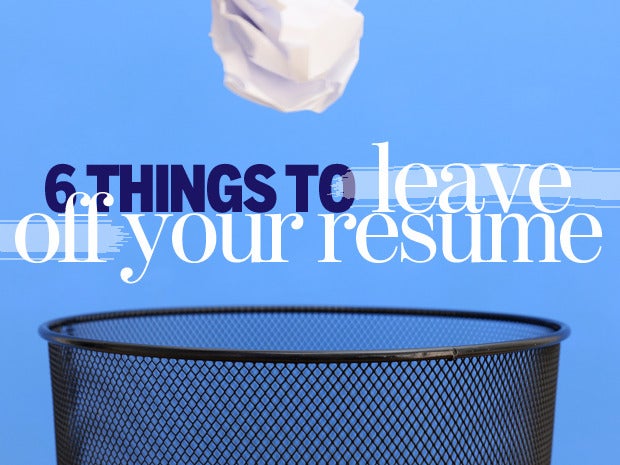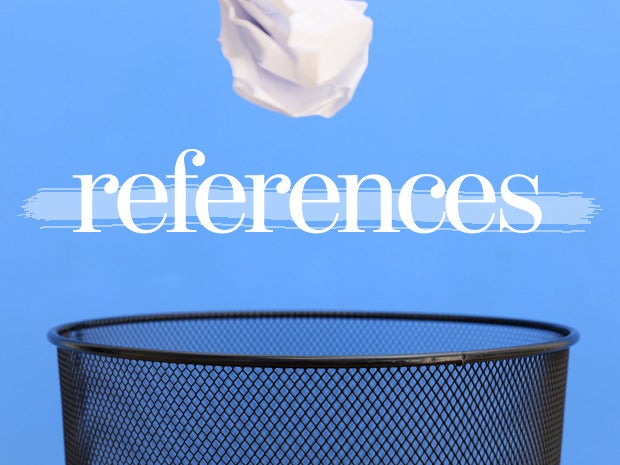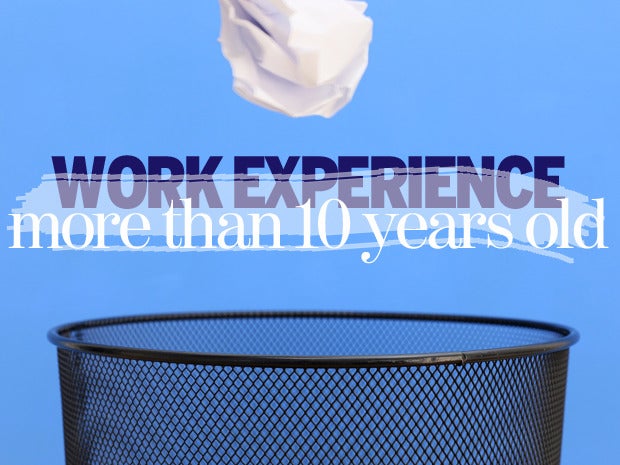6 things to leave off of your resume
- Ngoc Huynh

Things to leave off of your resume
Your resume is the story of your life at work, but it shouldn’t be a blow-by-blow description of your entire history — save that for your autobiography. Making sure the most relevant details and experience aren’t drowned out by extraneous details is key to grabbing and holding a recruiter or hiring manager’s attention.
“Don’t give [hiring managers and recruiters] a reason — any reason — not to hire you. They will automatically make assumptions about you based on your name, your age, your sex, and there’s not much you can do about that. But don’t make it that much harder on yourself by including stuff they really don’t care about,” says Rick Gillis, career consultant, job search expert, and author of Promote! Here, some of CIO.com’s resume experts offer additional advice on what not to include.
Your picture

Sure, employers are legally obligated to avoid discrimination in hiring — that means they can’t refuse to hire you based on your age, sex, race, gender identity, marital or disability status, among others. But unconscious bias is real, and even the most well-intentioned hiring managers can fall victim to it. Don’t include a picture with your résumé and risk triggering an unconscious bias from a hiring manager. If they want to know what you look like after reading about your killer technical skills and winning personality, they’ll check social media.
Your age

As we’ve stated before, avoid giving hiring managers and recruiters any reason to reject your resume, and that includes your age, or any factors that could point to your age. While you want to include your educational history, degrees, and any particularly relevant courses, projects, or certifications, it’s best to avoid putting graduation dates alongside these.
Age, of course, shouldn’t act as a deterrent in a job search, though in many cases ageism, especially in the startup culture that is IT, happens. Make sure you’re focusing on what your years of experience can bring to the table, and make sure you’re up-to-date on the latest and greatest technology, trends, and skills, says Gillis.
“It’s about being able to demonstrate your accomplishments. Most IT firms want to know one of two things: Can you make them money or can you save them money? Then they’ll want to hire you, regardless of your age,” Gillis says.
An ‘Objective’

There are two major problems with objective statements on a resume: The first is that they’re inane, and the second is that they take up some of the most valuable real estate while saying nothing of value. Say you’re trying to hire a skilled, talented, and seasoned software developer. If you read a candidate’s resume and it says, “Rockstar software engineer looking for a rewarding, fulfilling growth opportunity,” your first thought isn’t, “This is the one!”
Instead of a vapid objective statement, use this valuable space to articulate your brand and customize the statement to the job you’re applying for, says Michelle Jospeh, CEO of PeopleFoundry, in her blog. “By speaking only in generalities, you’re not adding any substance to the resume,” Joseph writes. She adds that many of today’s job seekers just eliminate the objective statement altogether. But if the resume feels naked without it, a sentence or two explaining why you’ll be perfect for the position you’re applying for will suffice.
References

This is another waste of space, and it’s best left out of any modern resume. Besides, many hiring managers and recruiters will search your profile on LinkedIn and read your social media endorsements and recommendations for themselves. “If they want references, they will request them; there is no need for you to waste space saying, ‘References available upon request,’ either,” Joseph says.
Work experience more than 10 years old

Your resume should include only the last 10 years of work history, the experts agree. Experience from more than a decade ago is no longer pertinent information for an application, as much will have changed since that time, Joseph writes. Unless a job was deliberately short-term — like an internship, a contract position, or a job in event planning, then it should be left off the page as well, she adds. And every job listed should have some relevance to the posting you’re applying for, the experts agree. “If you worked at a grocery store for three months 22 years ago, you don’t need to include that information,” says Caitlin Sampson, résumé writer and career expert with Regal Resumes.
Obsolete technology

Finally, while you want to include your technical skills, platforms, systems, solutions, and languages, make sure you’re not including technology that’s far out of date, no longer in widespread use, or that’s straight-up obsolete — unless it’s a specific requirement for the job. If the position requires mainframe skills and you have those, by all means include that. But if not, remove skills that aren’t currently relevant.
Source : http://www.infoworld.com/
